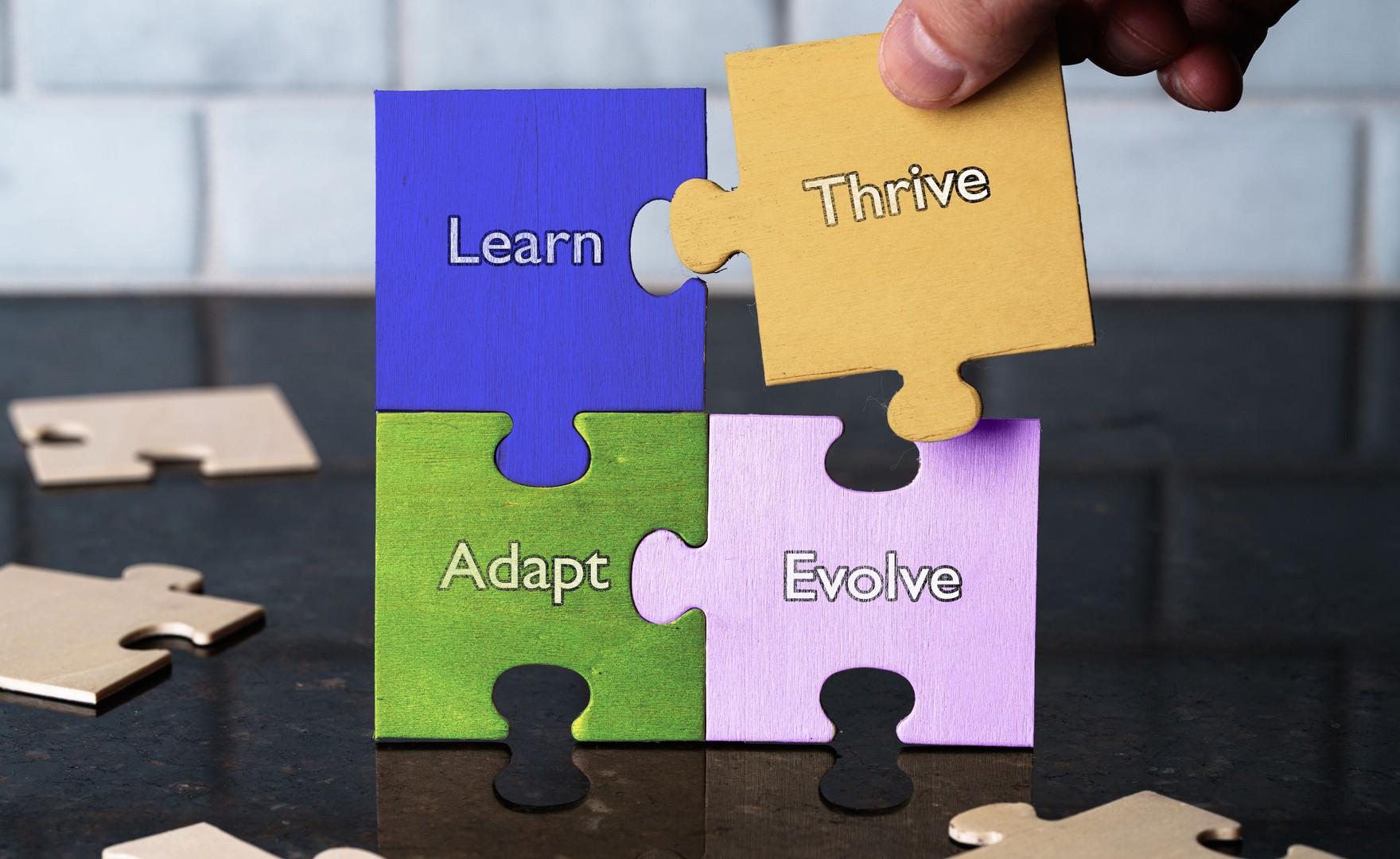The AoEC’s consultancy services are offered to organisations and feature a portfolio of tailored coaching based solutions and products that can serve to address a multitude of issues facing both large and small businesses today.
How coaching helps leaders develop an adaptive mindset in times of change
3rd June by Lee Robertson
Reading time 2 minutes

Change is not a one-off event - it is constant, complex and often unpredictable. Organisations must navigate shifting market conditions, technological advancements and evolving workforce expectations. In such an environment, business leaders need more than just technical expertise; they need an adaptive mindset. Coaching plays a pivotal role in developing this mindset and the behaviours that support it, enabling leaders to respond to challenges with agility and confidence.
Understanding the adaptive mindset and its importance
An adaptive mindset refers to the ability to remain open, flexible and proactive in response to change. Leaders who possess this mindset are not only more resilient but also better equipped to inspire and guide their teams through uncertainty. Rather than seeing change as a threat, they view it as an opportunity for growth and innovation.
Developing an adaptive mindset involves shifting from a fixed perspective - where past successes dictate future decisions - to a growth-oriented outlook that embraces learning and experimentation. This is particularly crucial in workplaces where agility and responsiveness can determine an organisation’s ability to thrive.
How coaching supports adaptive thinking and behaviours
Coaching is a powerful tool for helping leaders cultivate the self-awareness and emotional intelligence required to navigate change effectively. Through coaching, leaders engage in reflective practices that challenge limiting beliefs, enhance their decision-making capabilities and develop new ways of thinking.
- Building self-awareness and emotional intelligence
Coaching encourages leaders to examine their habitual reactions to change. Do they resist it, avoid it, or lean into it? By exploring their emotional responses, they can learn to manage stress, stay calm under pressure and make decisions with clarity. - Developing cognitive flexibility
An adaptive leader can shift perspectives, entertain multiple viewpoints and remain open to alternative solutions. Coaching facilitates this by encouraging critical thinking and reframing exercises that help leaders break free from rigid thought patterns. - Enhancing problem-solving and decision-making
Coaching provides a structured environment where leaders can explore different scenarios and develop strategic responses to complex challenges. By practising adaptive problem-solving, they become better at making informed decisions in uncertain situations. - Strengthening resilience and confidence
Change can be daunting, but coaching helps leaders build the resilience needed to navigate setbacks. By setting goals, reflecting on past experiences and identifying strengths, leaders gain confidence in their ability to manage evolving circumstances. - Fostering a culture of learning and innovation
Adaptive leaders influence their teams by modelling curiosity and continuous learning. Coaching encourages them to create environments where employees feel safe to experiment, take risks and contribute innovative ideas.
Why adaptability is a non-negotiable skill for business leaders
Where digital transformation, economic changes and shifting workplace dynamics are the norm, adaptability is no longer just a desirable trait - it is essential. Leaders who resist change risk making outdated decisions, disengaging employees and losing competitive advantage. Those who embrace adaptability, however, foster a culture of resilience, creativity and progress.
Coaching equips leaders with the mindset and behaviours needed to lead effectively in times of uncertainty. By developing self-awareness, cognitive flexibility, critical thinking skills, resilience and a commitment to learning, leaders can guide their organisations through change with confidence and strategic foresight.
Investing in coaching is not just about individual growth - it is about future-proofing organisations. As the pace of change accelerates, those who prioritise adaptability will be the ones who lead with vision, innovation and impact.
Interview
Practitioner Diploma / “The diploma gave me permission to stop trying to coach like someone else”
17th February 2026
Jay Jupp specialises in helping leaders turn life–work collisions into opportunities for clarity, connection and meaningful performance. With more than…
Article
Why leaders bring the climate crisis into the coaching space
17th February 2026 by Lee Robertson
As the climate crisis intensifies, its impact is no longer confined to environmental headlines or sustainability departments. It is becoming…
Article
How language can transform team collaboration
17th February 2026 by Lee Robertson
When a team gathers for a coaching session, they usually arrive with a clear sense of the challenges they want…